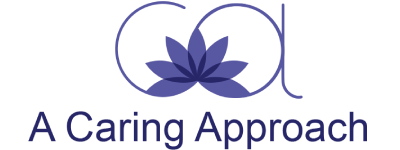Cognitive behavioral therapy (CBT) looks at how our thoughts affect our view of ourselves, of others and of the world. We have thoughts or evaluations about events, ourselves, and about our emotions and our behaviors; this in turn affects our ability to cope with life.
Researchers estimate that we have over 60,000 automatic thoughts per day. We do not notice many of those thoughts or self-talk. The unconscious thoughts are a product of core beliefs; these are deeply ingrained thoughts which represent important themes in our life; for example, themes of unworthiness, unlovableness, grandiosity, feeling that “others are not to be trusted,” “it’s a dog eat dog world,” etc. Core beliefs are developed early in life as our best efforts to adapt to life, but as we mature they can become problematic, maladaptive, and are at the root of anxiety, depression, relationship dysfunctions, and many other problems. Core beliefs are a key part of how we organize, filter, and process information, life situations and events.
Cognitive distortions are the product of core beliefs; they are specific types of dysfunctional, distorted, or negative thoughts that group or categorize automatic thoughts. Distortions seem to be true, but they are not based on sufficient evidence nor do they take into account alternative explanations.
In psychotherapy, individual counseling, and couples counseling Washington DC, identifying and modifying these distortions is therapeutically beneficial for personal and relationship wellness. What follows is a list of the most common cognitive distortions:
1) All-or-nothing thinking (black and white thinking):
One sees people or the world in absolutes (positive or negative extremes) while missing the middle ground (no gray areas). It is as if the internal dimmer switch is not being used. Language commonly used includes “never,” “always,” and leads to extreme feelings.
2) Magnification/minimization or catastrophic thinking:
One either blows things out of proportion, or shrinks them. A few examples of this language may include “no one is interested or cares about me,” “I won’t be okay alone,” “I have cancer – it’s a disaster and my life is ruined.”
3) Over-generalization:
People or things are put into categories. A negative event becomes a negative pattern – “this always happens to me.”
4) Mental filter or discounting the positive:
One dismisses, denies, or minimizes positive qualities; they don’t count. This point of view helps maintain negative core beliefs about oneself. One can also dismiss positive qualities about others, or life. “All of my designs look like crap. I’ll never be an artist – I should just give up.”
5) Jumping to conclusions not warranted by the facts:
(a) Fortune telling: Doomsday predictions (things will turn out badly). Examples include “I will not get hired,” “her family won’t like me.”
(b) Mind reading: one assumes to know what others are thinking, or assumes that others are reacting negatively about him/her or a situation based on similar past experiences. “You won’t like what I have to say,” “you must be angry at me, you didn’t kiss me goodbye this morning.”
6) Rationalization:
This involves giving oneself permission to do or avoid doing something. “It’s okay to do or avoid doing (__________) because (fill in the excuse).” One makes excuses for poor choices, avoiding changes, or protecting oneself from painful feelings. We can rationalize our behavior or the behavior of others. For example, “I’m not going to make that sales call because I’m sure the buyer will say no.”
7) Emotional reasoning:
One assumes that one’s negative feelings reflect the way things are (reasoning from one’s feelings). “I don’t feel like exercising, I won’t exercise,” “I feel depressed, the world is awful.”
8) “Should” statements/perfectionism:
One places false or unrealistic expectations on oneself or others. Anger, disappointment, guilt, or shame is experienced when the “should” is not fulfilled. This distortion can reinforce a core belief of “badness” and can also keep us stuck in the past. “I should do a better job of keeping in touch with my friends/mother/siblings; I am a bad friend/daughter/sister.”
9) Labeling:
(a) Oneself – Instead of saying “I did not pass the test, I am disappointed,” one says “I am stupid,” “I am a loser.” Or “I am a bad mother because I did not do xyz for my child.”
(b) Others – Instead of saying “I did not like your behavior, it offends me,” one may say “you are a bad person, a jerk.”
10) Blame (fault-finding instead of problem solving):
(a) Self-blame or personalization – Blaming oneself for something one is not responsible for is an “It’s all about me” attitude. For example, children often assume they are the cause of their parents’ divorce. Alternative explanations for the situation are dismissed.
(b) Other-blame – Blaming others while overlooking how one contributed to the problem. “You never help with the housework,” or “you never let me follow my dreams.”
